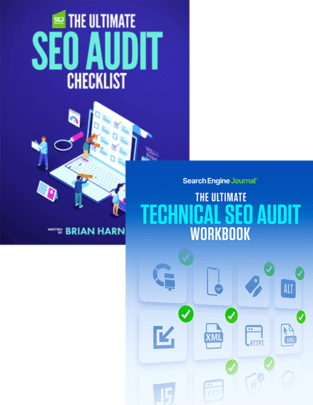The journey of a thousand optimizations typically begins with a single step – the SEO audit.
For most SEO professionals, an in-depth SEO audit is Step #1 after signing a new client or going in-house at a new company.
You have to know where you are to get to where you want to be.
That’s where the SEO audit comes into play.
Where you want to be is everywhere people are searching for you – your products, your services, or the things you know a lot about.
That means maximizing your visibility in the search results of Google and other search engines is essential.
An SEO audit is your roadmap for how you’ll eventually get there.
An SEO audit will reveal problems with any site’s SEO so you can address them and start ranking where you belong.
Do you know the most important areas of a website you should be assessing?
Is your SEO audit as thorough as it could be?
Well, we’re here to help you get the higher rankings, traffic, and conversions you desire.
The Ultimate SEO Audit Checklist – authored exclusively for Search Engine Journal by SEO expert Brian Harnish – is a comprehensive list of all the important items that should be included in your SEO audit.
Read The Ultimate SEO Audit Checklist to learn:
- Domain factors: This includes the domain name, age, history, and other factors you need to know.
- Page-level factors: Learn what matters when auditing E-A-T, headlines, keyword cannibalization, user engagement, and more.
- Content length: Your SEO audit should assess content, image links on a particular page, and how content is organized sitewide.
- Duplicate content issues: Learn how to identify these issues quickly as part of your SEO audit so you can fix them later.
- Website’s content factors: This includes schema markup, site architecture, your organic click-through rate (CTR), and more.
- Website updates: Learn why monitoring ongoing website changes is crucial and how to identify major issues that can occur in the process.
- Link profile audit: Learn how to identify and stop problematic links from harming you – as well as some of the top tools you can use.
- On-site technical SEO factors: Learn how to spot the most common issues, including issues with robots.txt, sitemaps, and image optimization.
FAQ
What is an SEO audit?
An SEO audit refers to the process of evaluating various elements of a website that impact its performance in organic search.
Why is an SEO audit important?
An SEO audit is important because it reveals problems with any site’s SEO so you can address them and start ranking where you belong.


